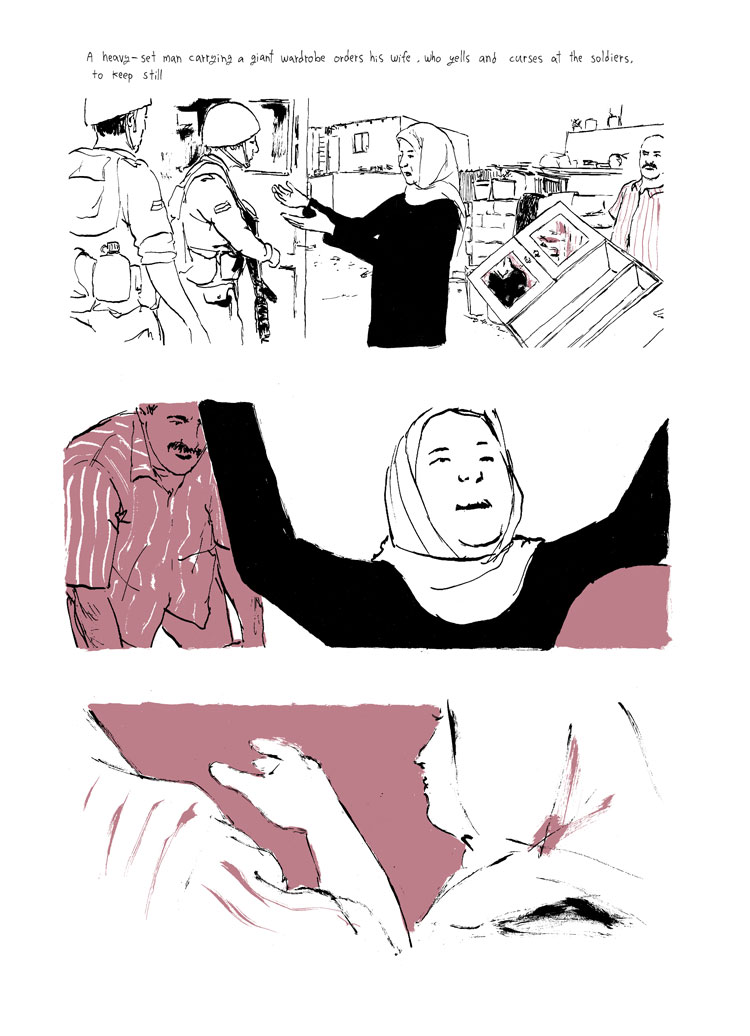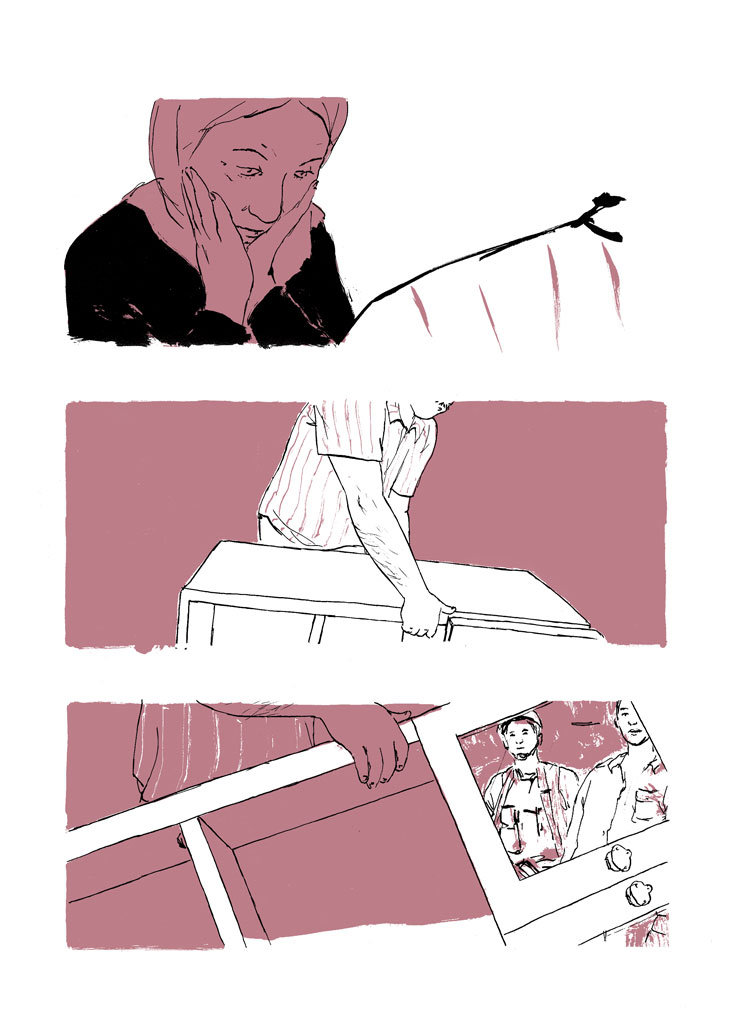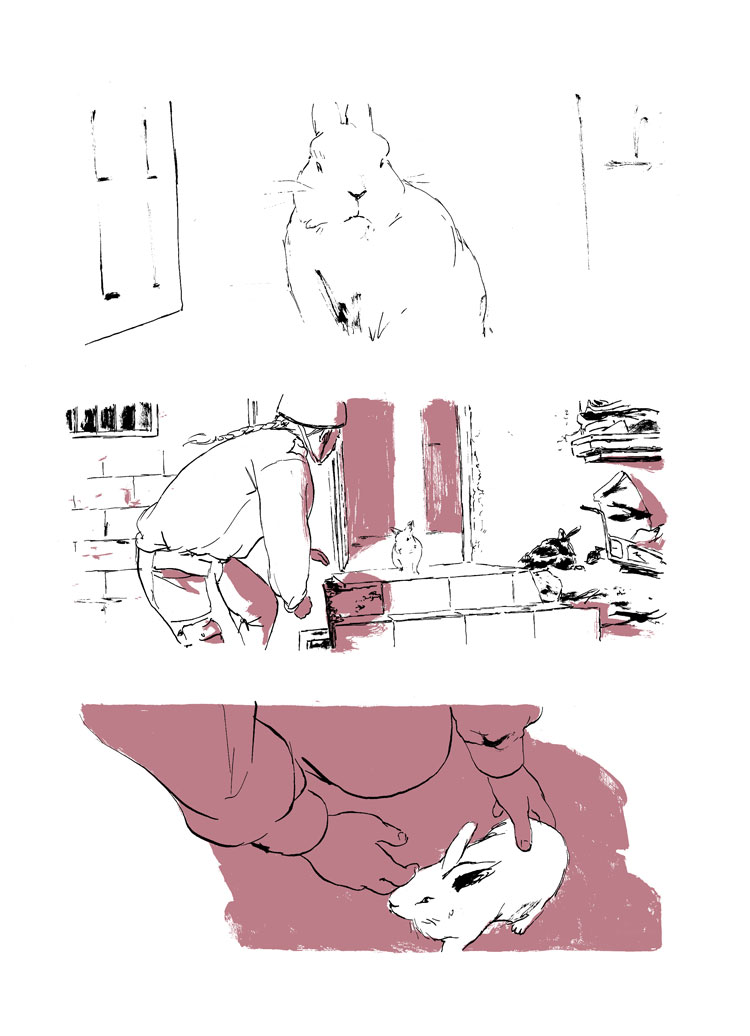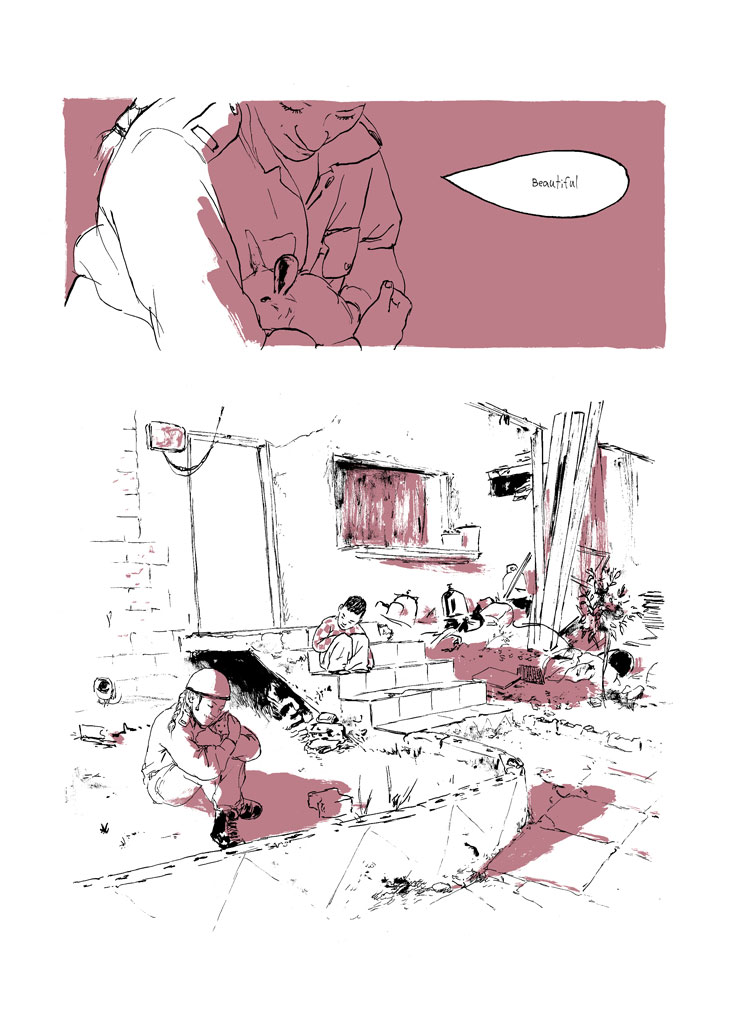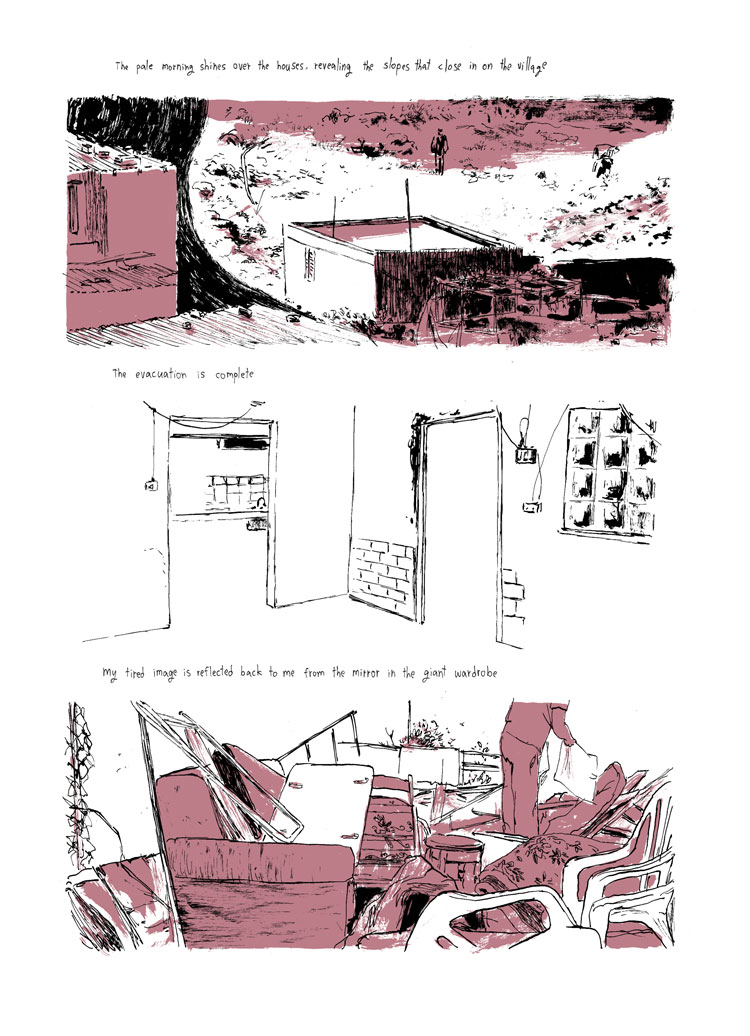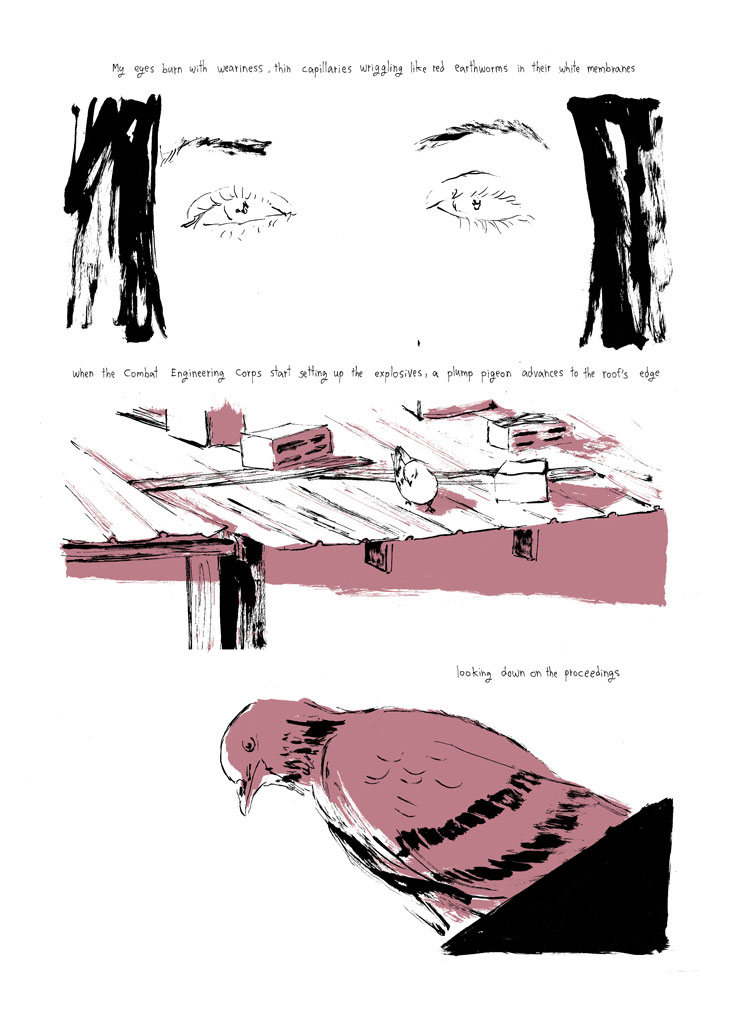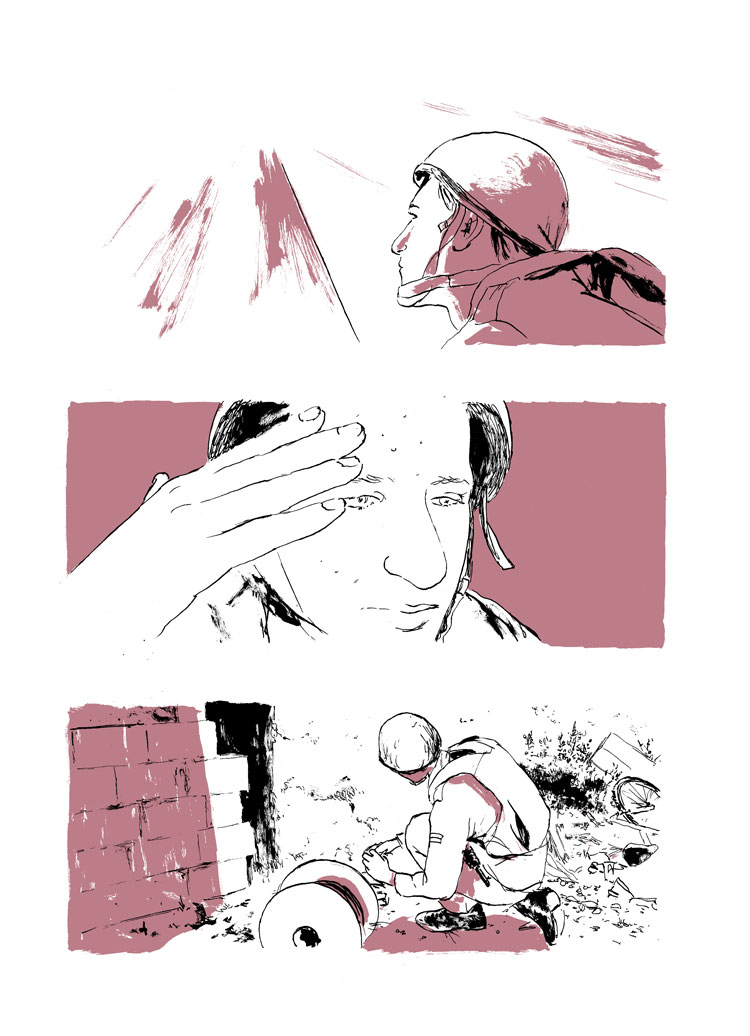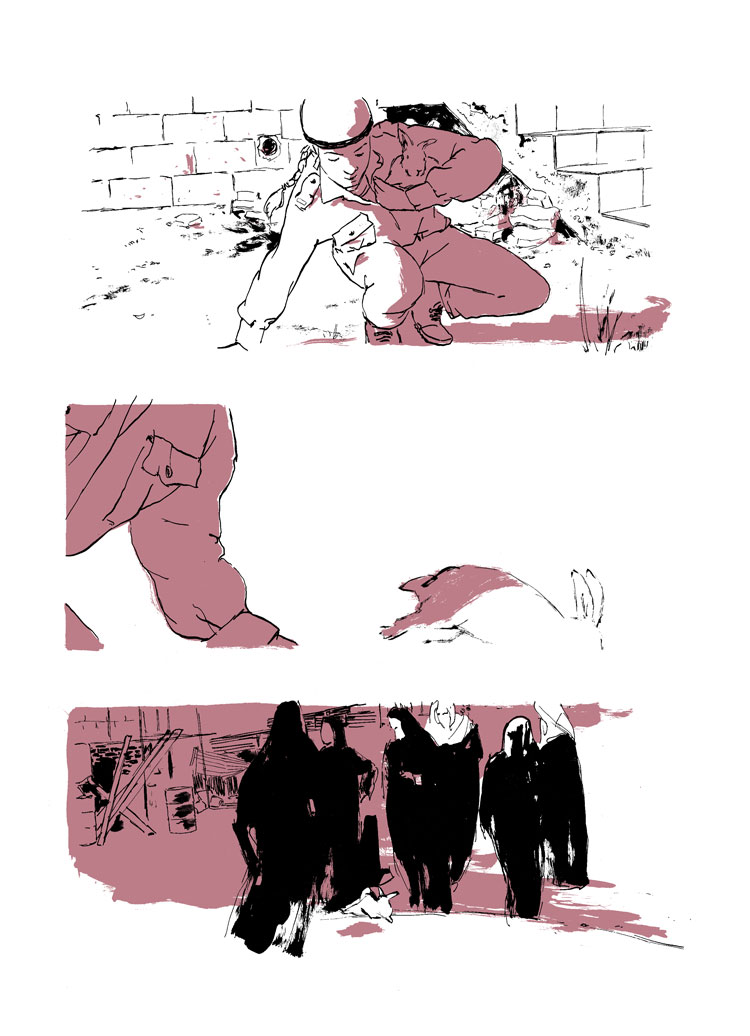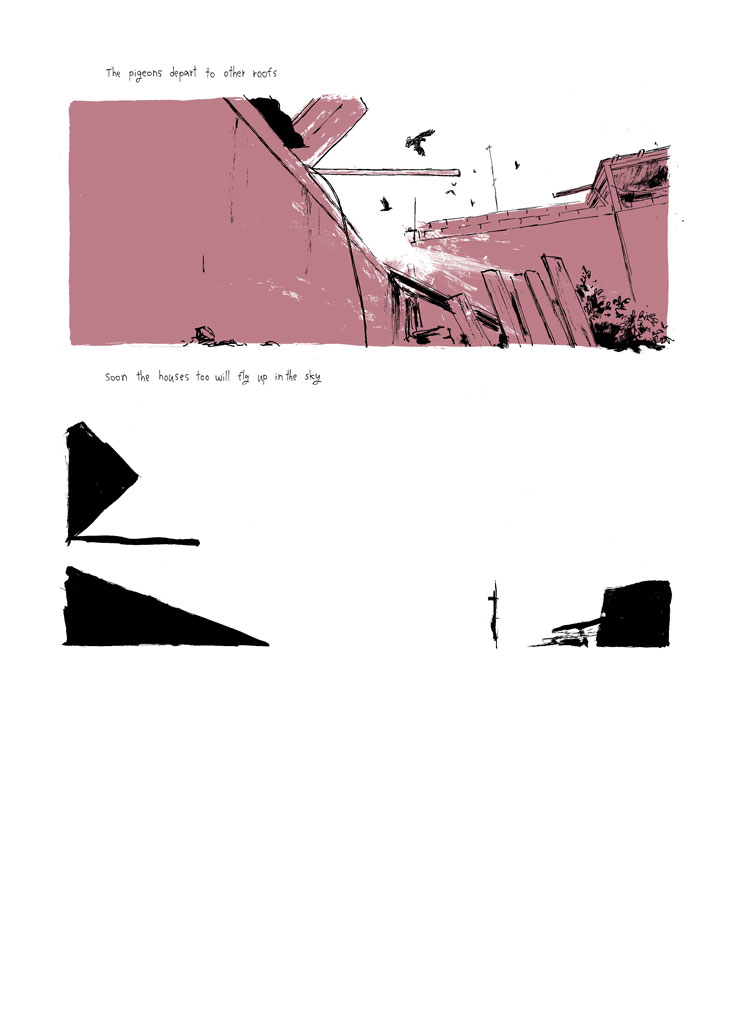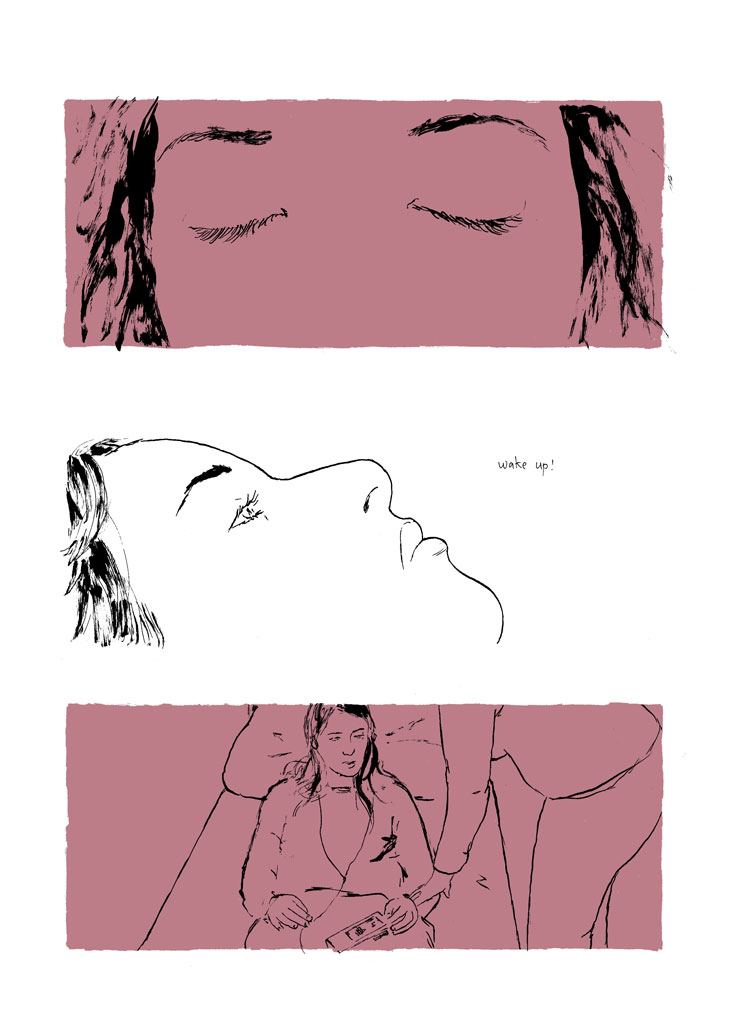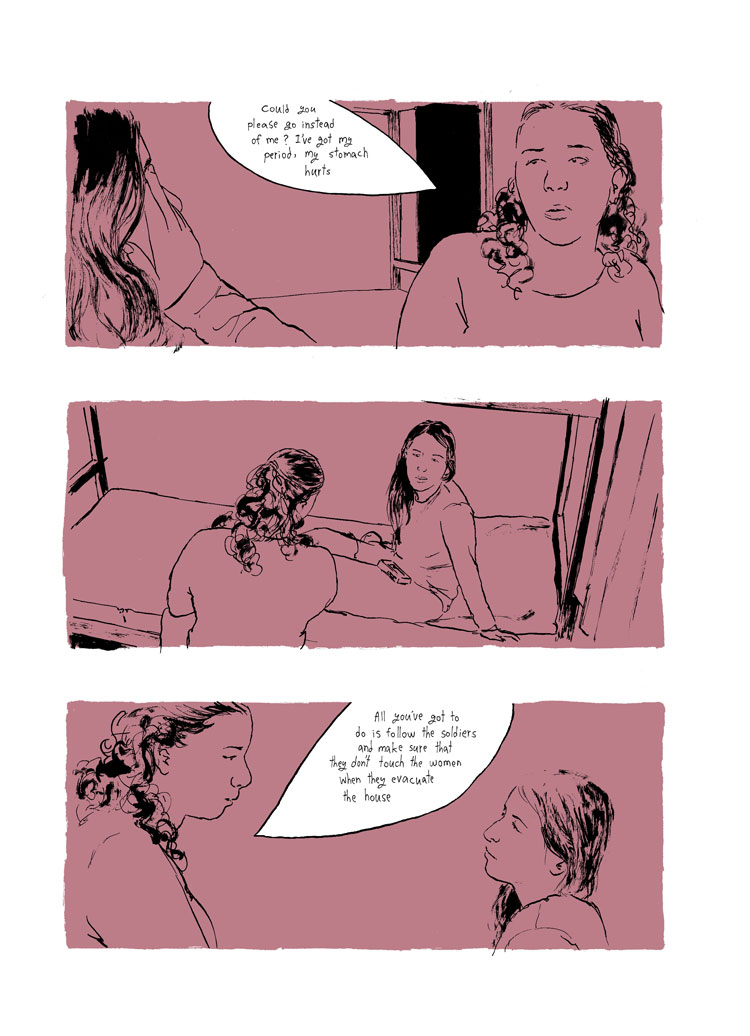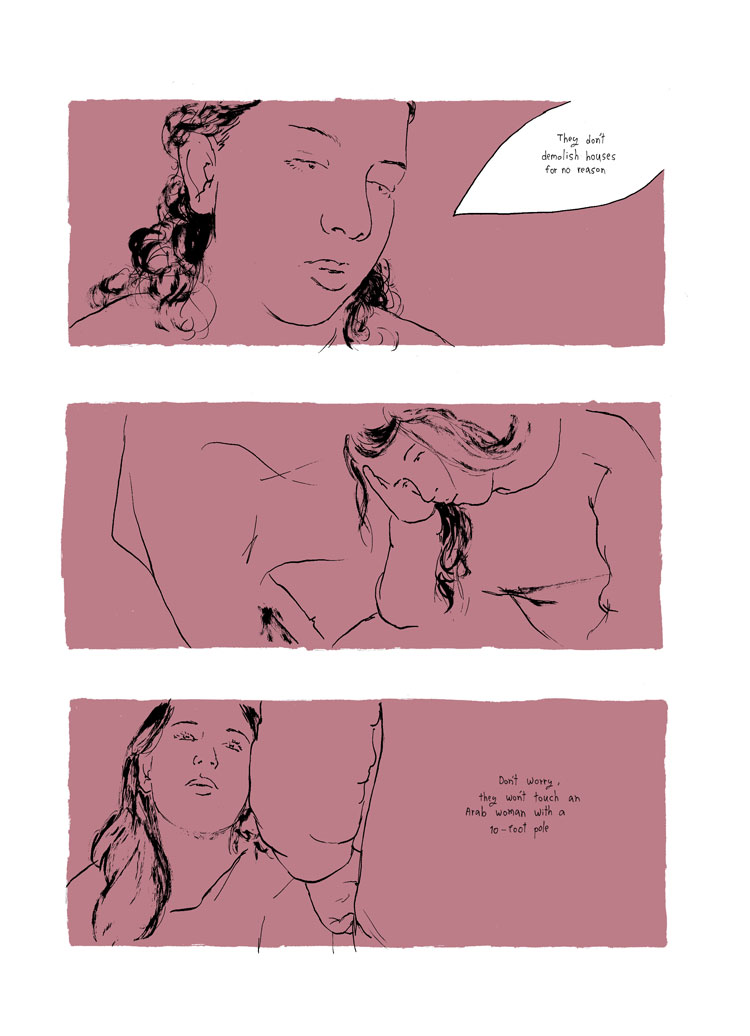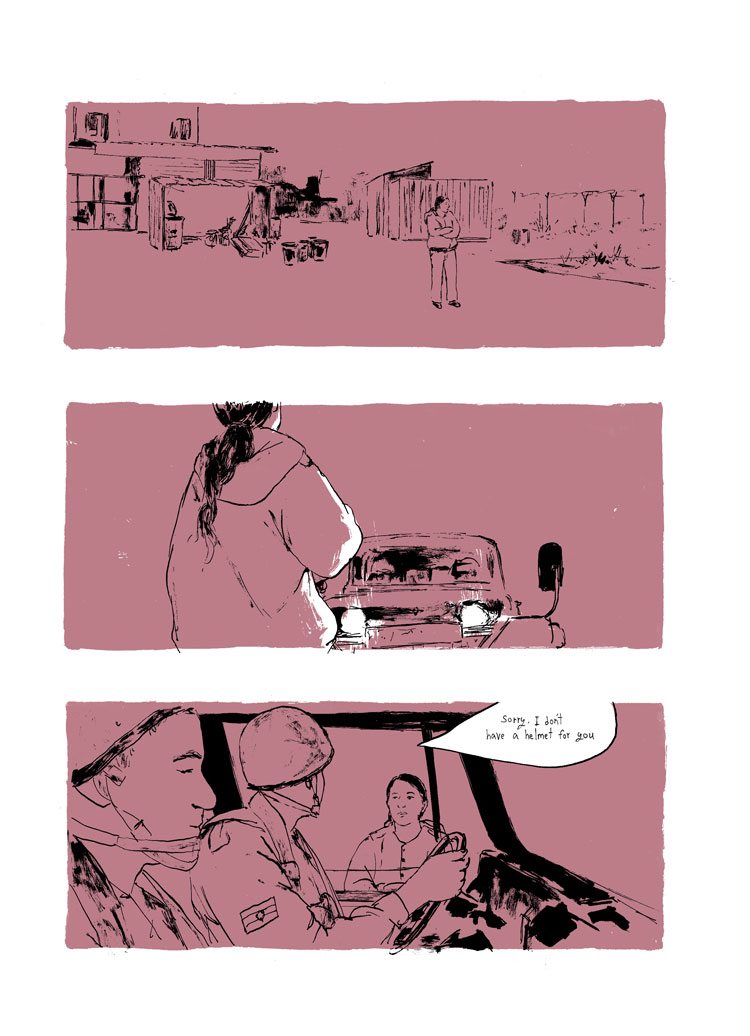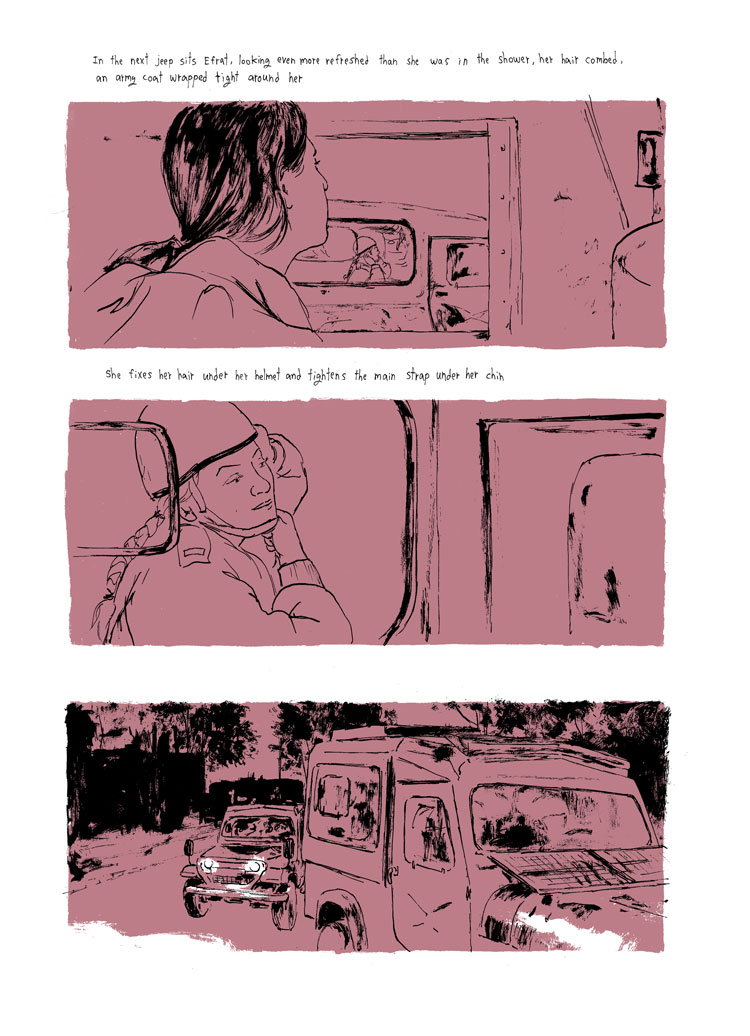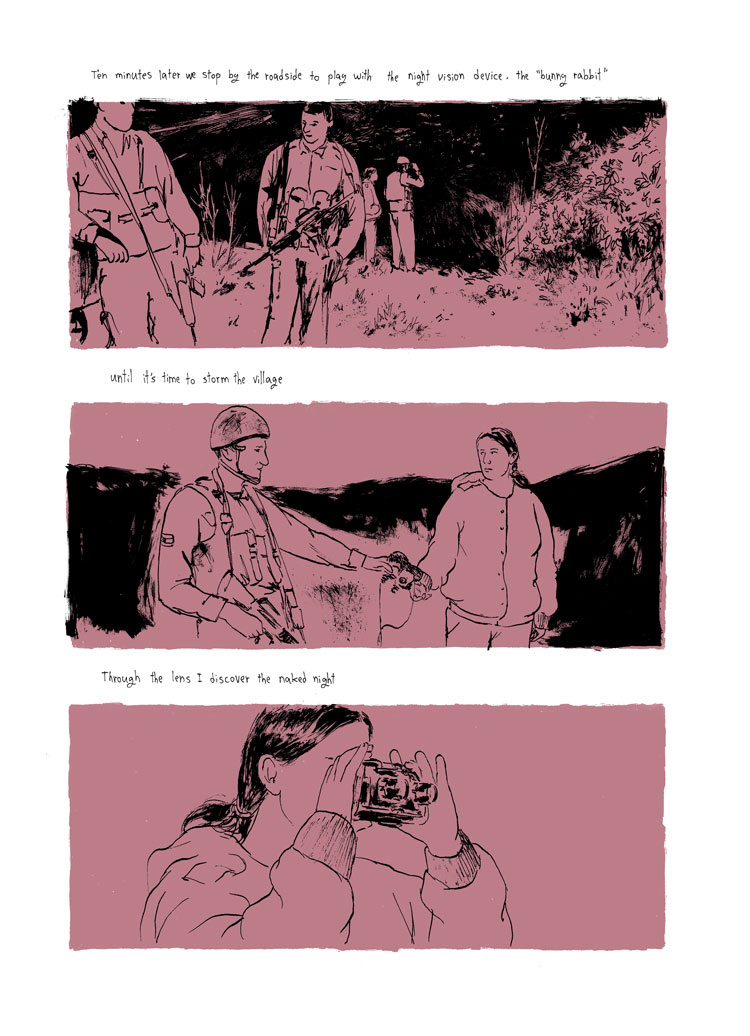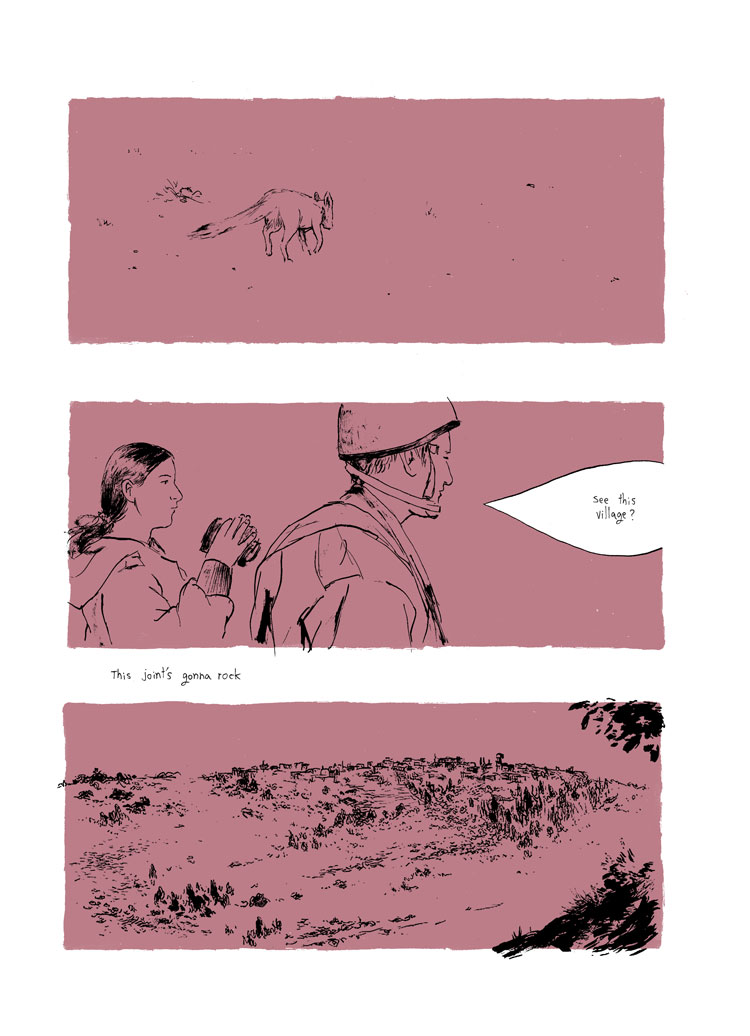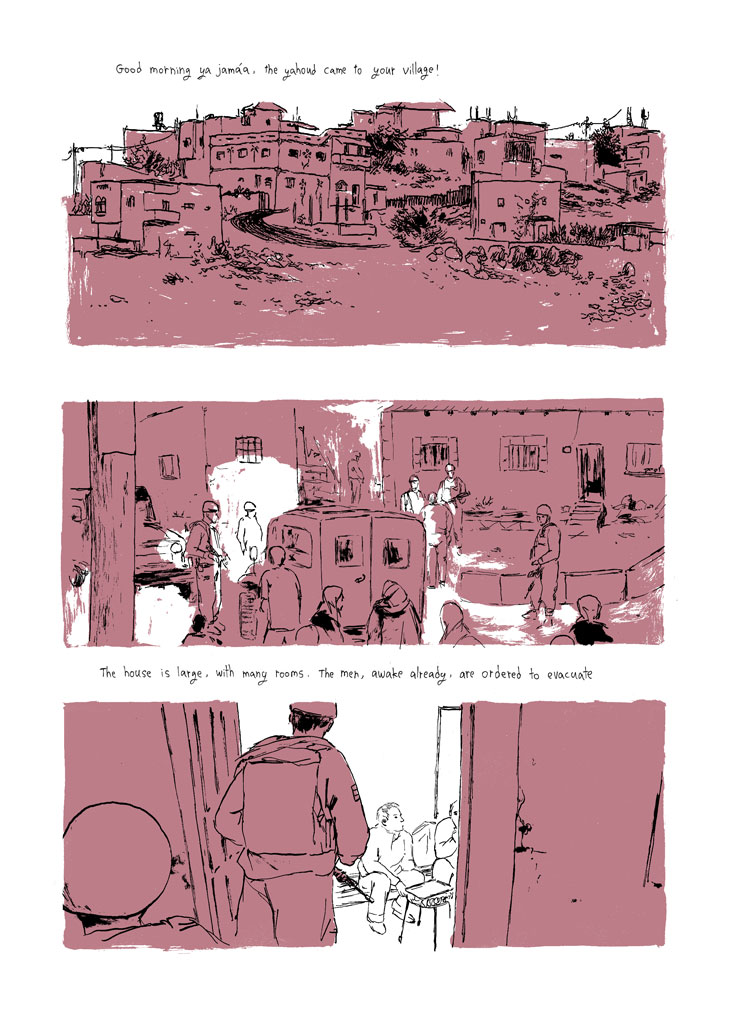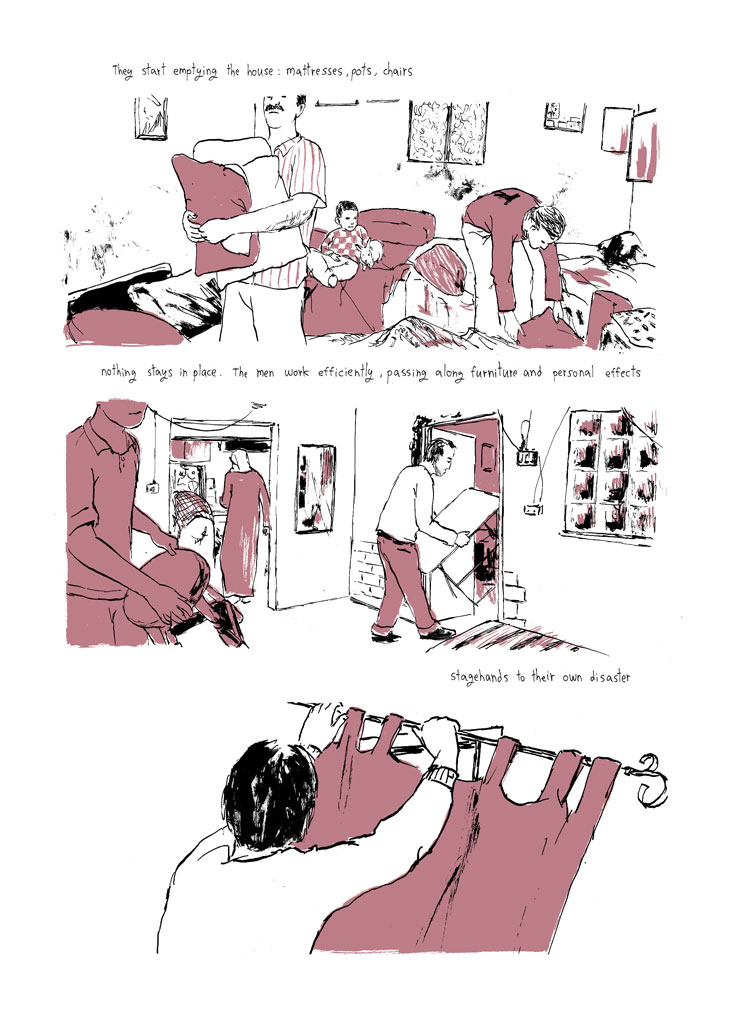Voice off frame: wake up !
Woman 1: Could you please go instead of me ? I've got my period , my stomach hurts
Woman 1: All you've got to do is follow the soldiers and make sure that they don't touch the women when they evacuate the house
Woman 1: They don't demolish houses for no reason
Woman 1: Don't worry , they won't touch an Arab woman with a 10 - foot pole
Solider: Sorry . I don't have a helmet for you .
In the next jeep sits Efrat , looking even more refreshed than she was in the shower , her hair combed . an army coat wrapped fight around her
She fixes her hair under her helmet and tightens the main strap under her chin
Ten minutes later we stop by the roadside to play with the night vision device , the " bunny rabbit "
until it's time to storm the village .
Through the lens I discover the naked night
Soldier: See this village ?
This joint's gonna rock
Good morning ya jamáa . The yahoud came to your village !
The house is large , with many rooms . The men , awake already , are ordered to evacuate
They start emptying the house : mattresses , pots , chairs
nothing stays in place . The men work efficiently , passing along furniture and personal effects
stagehands to their own disaster
A heavy - set man carrying a giant wardrobe orders his wife , who yells and curses at the soldiers . to keep still
Efrat: Beautiful
The pale morning shines over the houses , revealing the slopes that close in on the village
The evacuation is complete
my tired image is reflected back to me from the mirror in the giant wardrobe
My eyes burn with weariness , thin capillaries wriggling like red earthworms in their white membranes .
when the Combat Engineering corps start setting up the explosives , a plump pigeon advances to the roof's edge
looking down on the proceedingsThe pigeons depart to other roofs
Soon the houses too will fly up in the sky
The pigeons depart to other roofs
Soon the houses too will fly up in the sky







